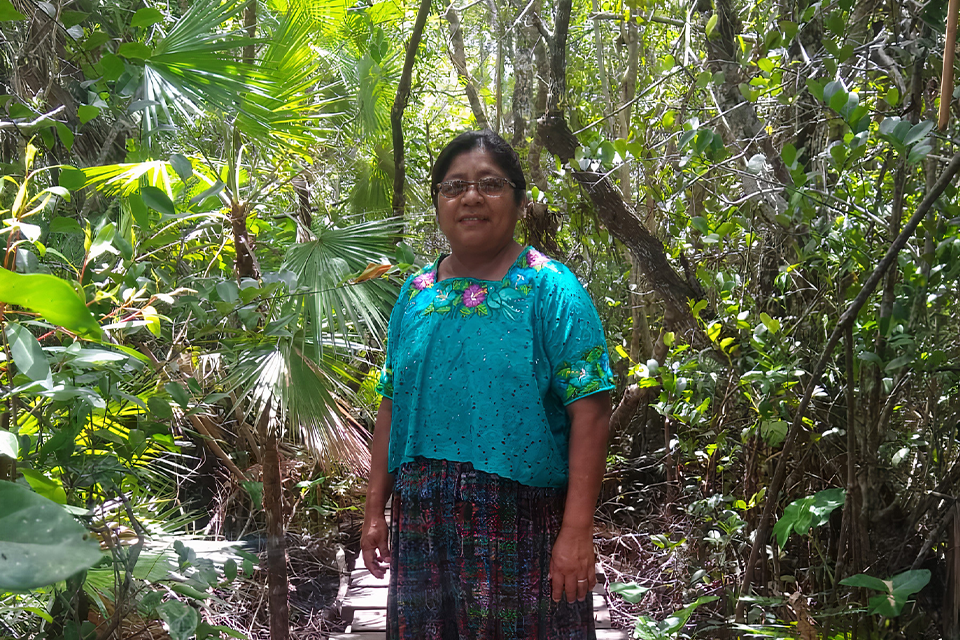Women in Leadership: Activists dedicated to environmental restoration and conservation. | Lola Cabnal
Date:

Lola Cabnal is a firm believer in the motto "educate to conserve". She is a Mayan Q'eqchí woman from a rural community in the municipality of Livingston, Department of Izabal, Guatemala. She is a social worker and chairs the Council of Indigenous Women and Biodiversity in Guatemala. She works in the area of political advocacy for the Ak' Tenamit Association and is a member of the Board of Directors of the Indigenous Roundtable on Climate Change in Guatemala and in other advocacy spaces, such as the group promoting communal lands, among others.
She has also represented the Network of Indigenous Women and Biodiversity of Latin America and the Caribbean in negotiations on Climate Change at the international level. She has been an observer for the Abya Ayala Indigenous Forum of Latin America on the Executive Board of the UN-REDD+ Program.
Why do you defend the environment?
My parents taught me that everything around us is a very powerful, that without we cannot live without it. They told me "if you love yourself, take care of what gives you life". That's where it all comes from. What is the relationship between feminism and the environment? For us indigenous women there is no differentiation. One thing complements the other. Just as we women can be mothers and breastfeed our children, so is our cosmo, our environment that feeds us and [nourishes us]. We call the planet, our Mother Earth, because it gives us food and drink.
Why do environmental issues particularly affect women?
Because our environment is our complement, our brother or sister, our ancestors, and when something happens to it, it transmits and affects us, whether it is destruction, contamination, degradation, deforestation, among others. We say "it is sad, it is asking for help or it is deteriorating", it stops producing our food, everything begins to disappear, and even the loss of biodiversity occurs. That affects us because our health depends on it and everything we can have for a dignified life.
How do you practice activism in both cases?
I do it by educating, raising awareness. I believe that promoting formal and informal education for young women of limited resources from indigenous and rural communities has allowed better use, proper management and awakening an awareness that generates changes in attitudes. It also helps to recognize that there are other alternatives to find solutions to socio-environmental problems. It should be noted that women play an important role in the care and management of our natural resources. The contribution of women's ancestral knowledge has allowed for sustainable development of our environment.
What is the connection between environmental preservation and women's land rights?
It is a relationship of dual power, respect, acceptance and perseverance. Indigenous women know when resources can be used in our environment or in our midst and we know when they cannot. Just as we need respect and recognition, so does our mother earth and our environment deserve respect.